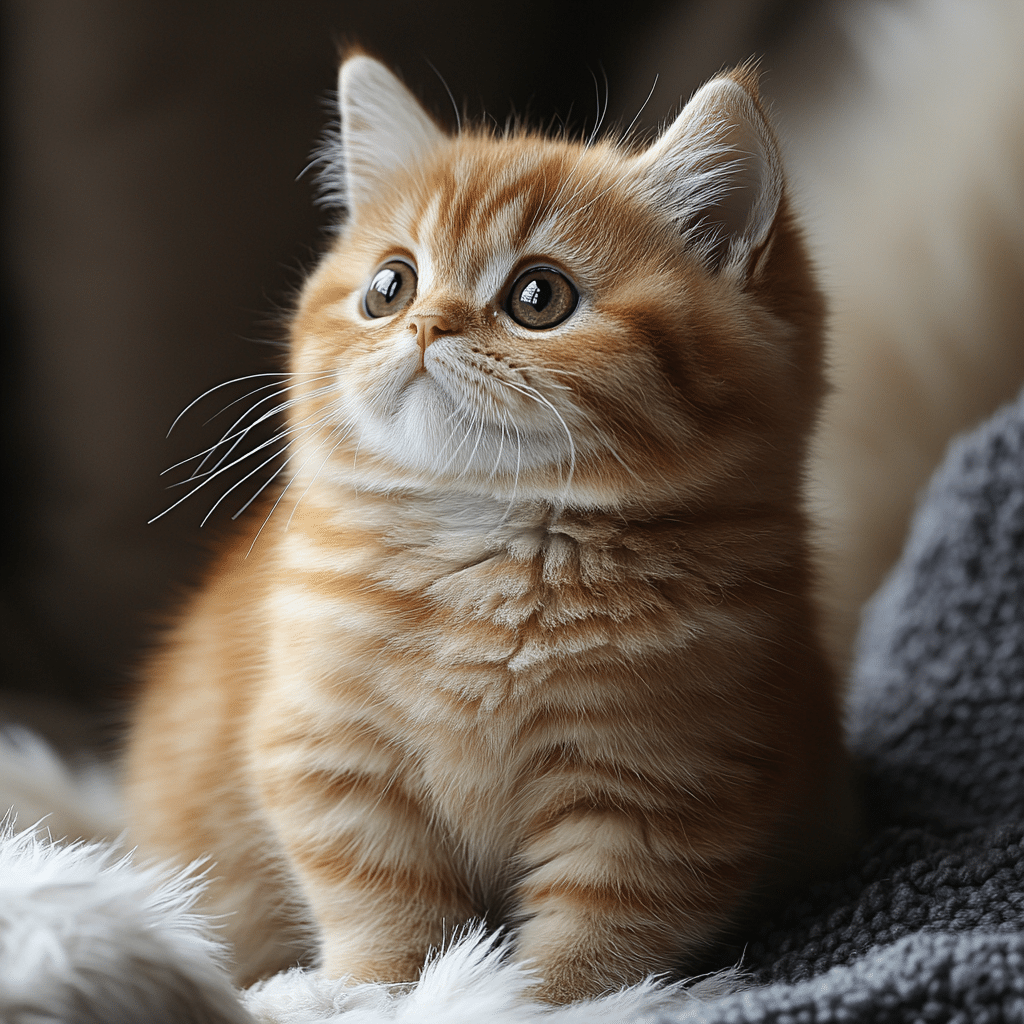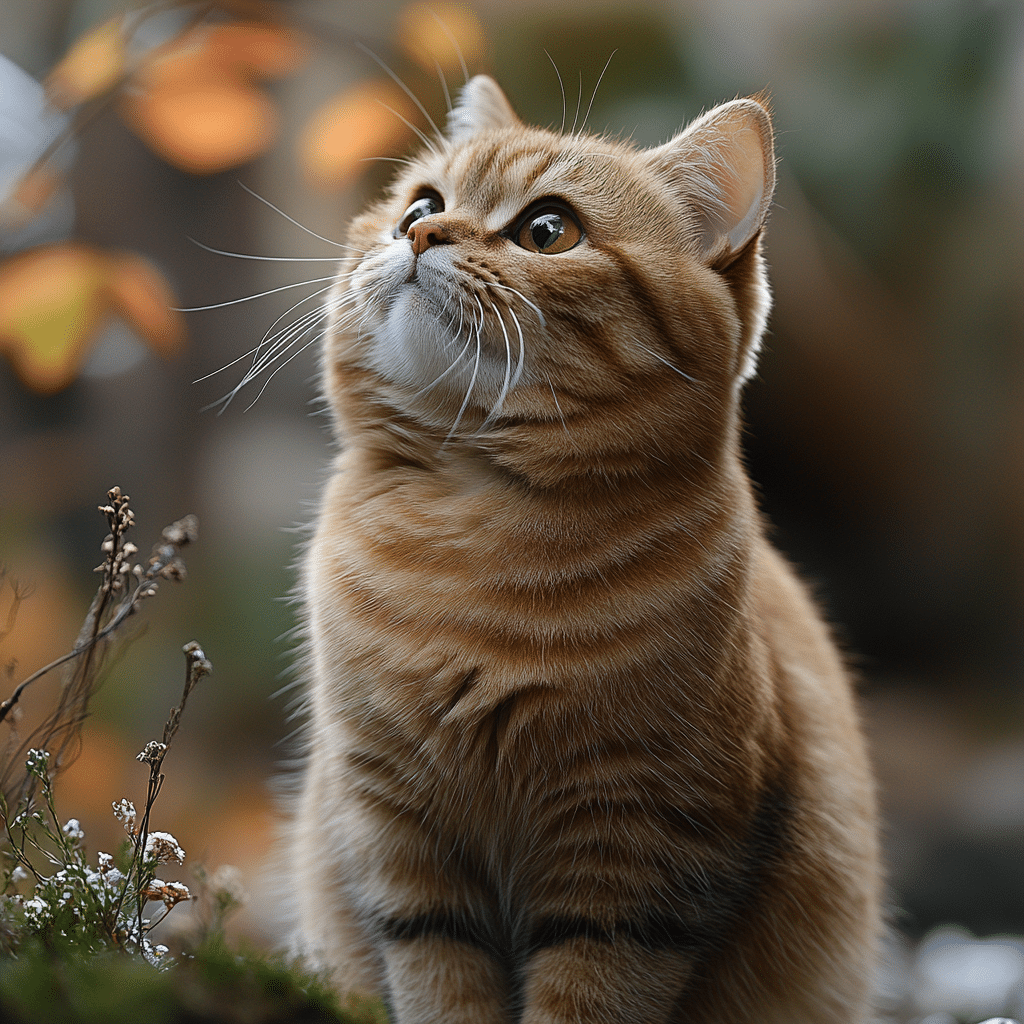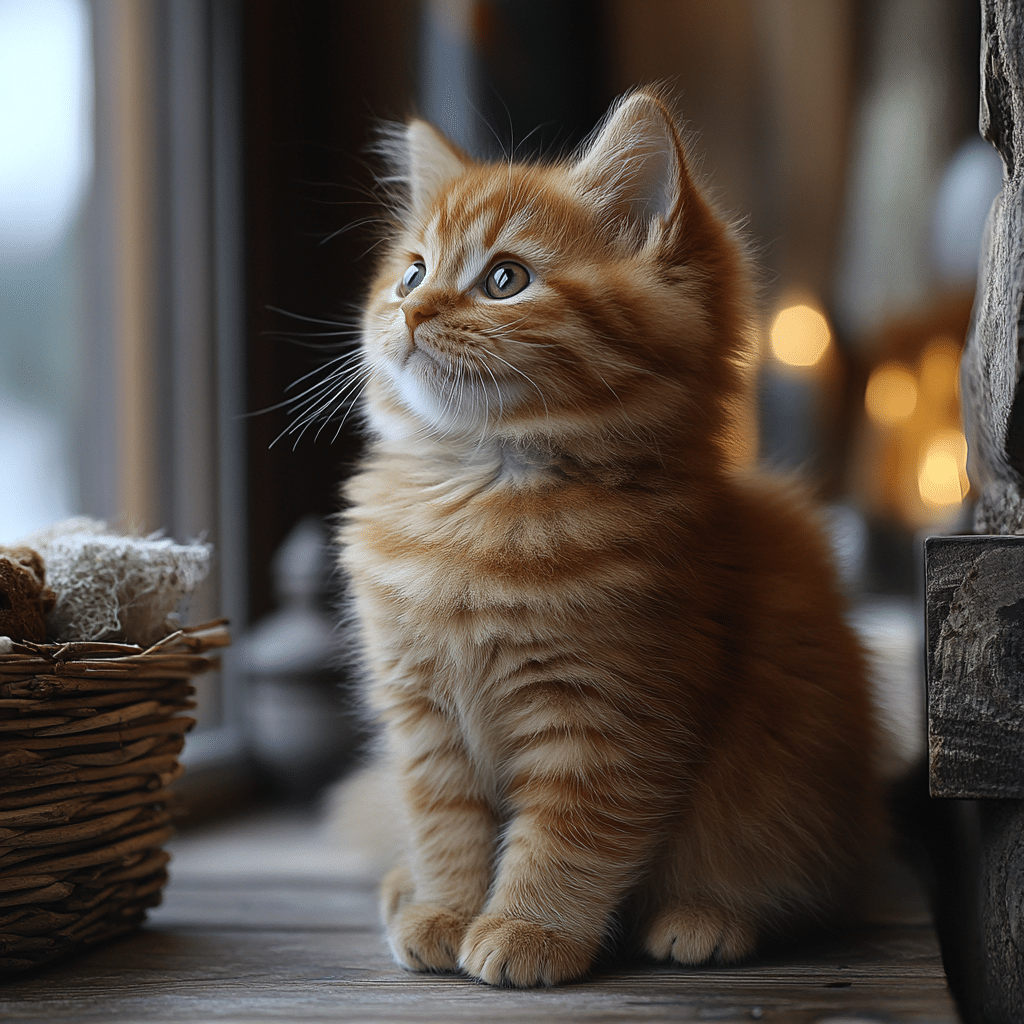Munchkin cats, with their adorably short legs and vibrant personalities, have been captivating cat lovers since their rise to popularity. The life expectancy of Munchkin cats generally ranges from 12 to 15 years, a lifespan that can vary based on several factors like diet, genetics, and overall health management. Unlike some purebreds that may suffer from specific health issues, the charming Munchkin often enjoys a heartier constitution, thanks to hybrid vigor from crossbreeding with various other breeds. This article will explore the fascinating traits of Munchkin cats, compare their longevity with other popular pets, and provide expert insights into ensuring they live a long, fulfilled life.
Understanding the Life Expectancy of Munchkin Cats
The life expectancy of Munchkin cats can be influenced by numerous elements. First and foremost, genetics plays a significant role. Fortunately, Munchkins haven’t shown a strong inclination toward hereditary illnesses as some other breeds do. Regular veterinary check-ups can help catch any potential health issues early, allowing you to take action before they become serious.
Good nutrition also contributes immensely to a healthier, longer life for Munchkin cats. A balanced diet, especially high-quality cat food like Royal Canin or Hill’s Science Diet, provides essential nutrients that support their vibrant lifestyle. Obesity can be a considerable concern, so feeding them the right portions is crucial.
Lastly, the environment a Munchkin cat calls home can greatly influence their lifespan. Indoor living usually leads to longer life due to lower exposure to environmental dangers, diseases, and accidents. Cats that roam outdoors are at risk of numerous hazards such as traffic accidents or encounters with other animals. Keeping them safe indoors can go a long way in ensuring they reach their upper life expectancy.

Unique Traits of Munchkin Cats
Munchkin cats are as unique in personality as they are in appearance. Here are some traits that make them stand out:
Munchkin cats have this charming confidence that reassures anyone who crosses their path; it’s no wonder they’re a favorite among many households!
Munchkin Cats vs. Other Breeds: A Lifespan Comparison
When it comes to the life expectancy of Munchkin cats, it’s interesting to compare them to other popular pets:
These comparisons emphasize that while Munchkin cats have a lifespan similar to other beloved pets, it’s critical to provide them with quality care.

Factors Influencing Lifespan in Munchkin Cats
Several key factors influence the life expectancy of Munchkin cats, and understanding them can lead to better pet care:
It’s essential for Munchkin cat owners to create a healthy lifestyle that promotes longevity and well-being.
Expert Insights on Caring for Munchkin Cats
In order to ensure the life expectancy of Munchkin cats remains on the higher end, experts recommend specific strategies for care:
Conclusion
Owning a Munchkin cat can be one of the most rewarding experiences for any pet lover. Their life expectancy falls comfortably alongside other non-exotic pets, usually between 12 to 15 years. By providing them with proper care and a loving environment, pet owners can contribute significantly to their long and joyous lives. The journey of nurturing a Munchkin cat can undeniably be filled with laughter, companionship, and an unbreakable bond that thrives for years. To find a Munchkin that fits perfectly in your family, consider checking out reputable breeders who prioritize health and wellbeing.
Remember, a happy Munchkin equals a happy home!
Life Expectancy of Munchkin Cats
When diving into the life expectancy of munchkin cats, it’s essential to know that these adorable felines typically live for about 12 to 15 years. Their lifespan can be influenced by various factors, including genetics, proper nutrition, and regular veterinary check-ups. Much like the best practices of getting a puppy, such as knowing where to find a Shih Tzu puppy For sale near me, taking good care of your munchkin is paramount for ensuring a long, healthy life.
Interestingly, the munchkin cat breed has a fascinating history that contributes to its resilient lifespan. Known for their short legs, munchkins were first recognized in the 1980s. While some folks may think this trait is a result of genetic mutation, it’s actually a naturally occurring variation. Maintaining a healthy weight, just like wearing the right shoes for exercise, is crucial. Overweight cats can suffer from various health problems, so keeping an eye on their diet is essential for a longer life.
A commendable aspect of munchkin cats is their playful and sociable nature, which often helps them stay active and mentally stimulated. For example, many munchkin owners enjoy watching their kittens play with toys or get focused on what’s on their desk— like how a kitten is so focused on what’s on my desk can bring joy and entertainment! Their engaging personalities encourage owners to interact with them, which not only strengthens the bond but also promotes a higher quality of life. That said, simply having a munchkin isn’t enough; care and socialization are key in improving the life expectancy of munchkin cats to its fullest potential.
In conclusion, while the life expectancy of munchkin cats can range from 12 to 15 years, numerous factors influence this figure. Providing a balanced diet, regular veterinary care, and keeping them engaged are just a few ways to ensure they become a cherished part of your life for as long as possible. Plus, owning one of these unique cats adds a dash of excitement to your household, similar to landing a gaming experience like Subnautica 2 that keeps you on your toes!

What health problems do Munchkin cats have?
Munchkin cats can face a few health problems mostly related to their short legs. These may include hip dysplasia, lordosis, and more commonly, some spinal issues, but these aren’t guaranteed and many Munchkins live healthy lives.
How long can Munchkin cats live?
Typically, Munchkin cats live around 12 to 15 years, which is pretty standard for many cat breeds. With good care, some even exceed that range, giving you plenty of time to share love and cuddles.
Are Munchkin cats constantly in pain?
No, Munchkin cats aren’t constantly in pain. While they may have some genetic issues, many live comfortably and are just as playful and active as any other cat breed.
Do cats with dwarfism live longer?
Cats with dwarfism can have a longer lifespan when they’re monitored closely for health issues and given proper care, but like any pet, longevity varies based on individual circumstances.
What are the disadvantages of a Munchkin cat?
The disadvantages of a Munchkin cat include potential health issues related to their skeletal structure and sometimes a higher price tag. They might also face a bit of social stigma due to their unique appearance.
What cat breed lives the longest?
The Siamese and Burmese cats are known to live the longest among all cat breeds, often reaching into their late teens or even early twenties with good care.
Do Munchkin cats like to be held?
While Munchkin cats can be a bit particular, many enjoy being held and cuddled, especially if they’ve been socialized from a young age. Every cat’s personality is different, though!
What breed of cat lives the shortest?
The breed with the shortest lifespan tends to be the Sphynx, which can face various health issues, usually living around 8 to 12 years on average, but individual care makes a big difference.
Why are Munchkin cats so expensive?
Munchkin cats can be on the pricey side due to their unique breeding, popularity, and potential health testing that reputable breeders may perform to ensure the cats are as healthy as possible.
Why are Munchkin cats illegal?
In some places, Munchkin cats are illegal because of concerns over their breeding practices and potential health issues. Local laws can vary greatly, so it’s good to check before getting one.
How much does a Munchkin cat cost?
Prices for Munchkin cats can range from a few hundred to several thousand dollars, depending on factors like pedigree and breeder reputation. Always make sure to buy from reputable sources.
What is the best food for Munchkin cats?
The best food for Munchkin cats includes high-quality, protein-rich diets that cater to their energy levels and keep them healthy. Consulting with your vet can help you choose the ideal food.
What is the cutest cat breed?
The Ragdoll and Scottish Fold are often deemed some of the cutest cat breeds, both for their loving temperament and adorable features, making them popular choices among cat lovers.
Are Munchkin cats smart?
Munchkin cats are generally smart and curious, often getting into trouble thanks to their playful nature. They can be trained to do various tricks and may even learn to fetch!
Do mixed cats live longer?
Mixed-breed cats often live longer than pure breeds, as they typically have fewer inherited health issues. That being said, proper care is always key to a long life.
Do Munchkins have joint problems?
Munchkin cats can have joint problems due to their unique body structure, especially if they carry extra weight, so keeping them active and at a healthy weight is really important.
Do smaller cats have more health problems?
While smaller cats can sometimes face more health issues, it really depends on the individual breed and their genetics. Regular vet check-ups and good care can help mitigate any risks.
What is the best food for Munchkin cats?
The best food for Munchkin cats includes a balanced diet made with quality proteins and nutrients suitable for their activity level. A vet can recommend the best options suited for your cat’s needs.
Are Scottish fold cats in pain?
Scottish Fold cats are known for their ear structure, but they may suffer from painful conditions like osteochondrodysplasia, which can cause joint pain. Regular check-ups can help manage their health.


